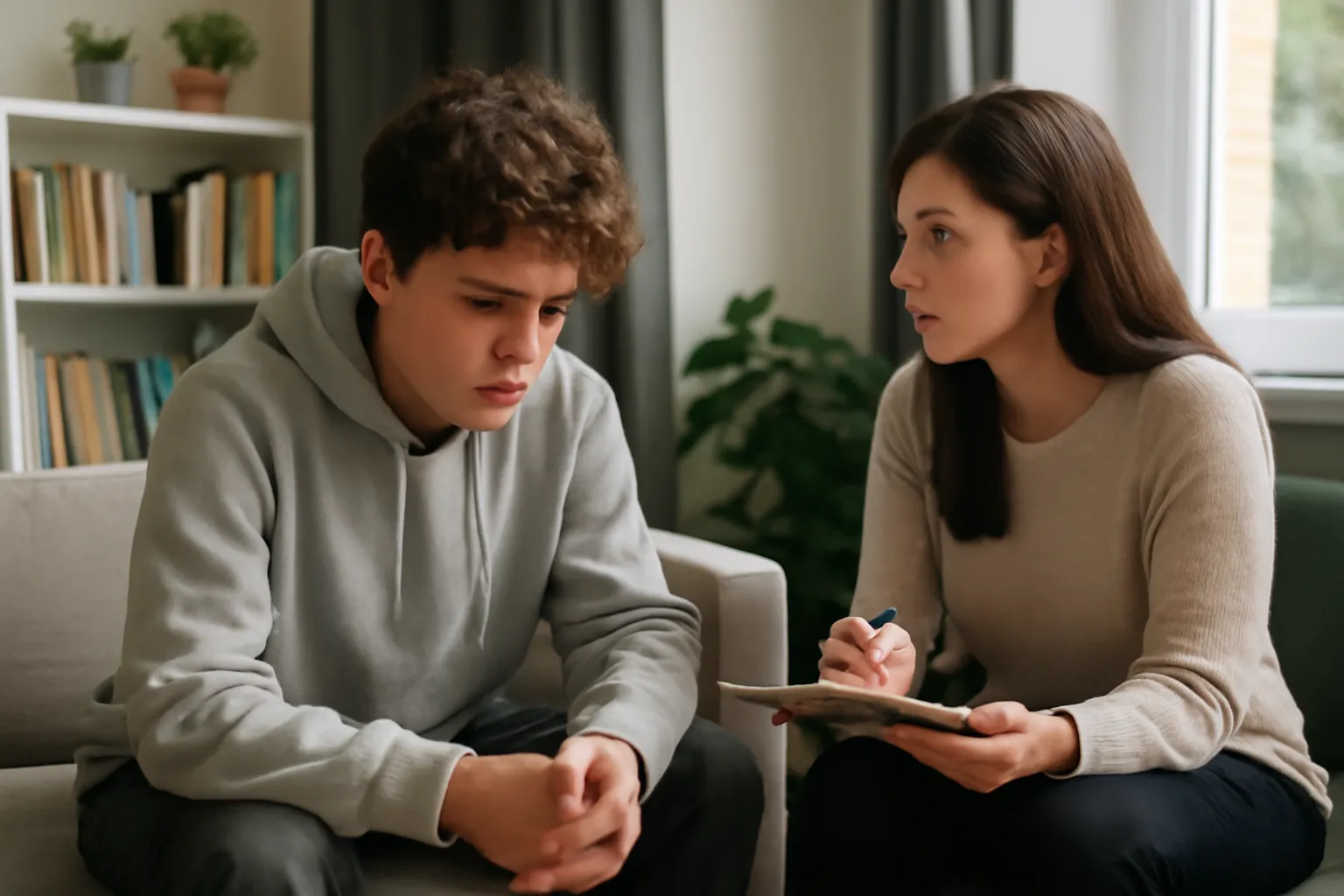In the face of academic pressures and personal challenges, many high school students contemplate or experience dropping out. For educators, counselors, and families, supporting these students is a critical role. Understanding the causes of dropout, providing timely counseling, and offering viable solutions are essential to help students stay engaged and succeed.
Are you concerned about a high school student’s potential dropout? Learn the importance of high school student counseling and discover strategies to guide students through their struggles and keep them on track for success.
High School Student Dropout: Understanding the Issue
High school dropout rates are a significant issue in many educational systems worldwide. The decision to drop out is often influenced by a combination of academic, personal, and societal factors. Students may struggle with mental health issues, lack of academic support, or difficulties at home, which ultimately affect their ability to stay in school.
The high school years are crucial for a student’s development, both academically and socially. The decision to drop out can have long-term consequences, including limited career opportunities and a higher likelihood of experiencing financial and social challenges. That’s why it’s so important to intervene early and offer support before the situation escalates into a decision to leave school.
Common Reasons Behind High School Dropouts
-
Academic Struggles Students who consistently fall behind in their coursework may feel overwhelmed and frustrated. This lack of academic confidence can make them consider dropping out.
-
Mental Health Issues Depression, anxiety, and other mental health challenges can cause students to withdraw from school, especially when they don’t have the coping mechanisms or support to manage their struggles.
-
Family or Social Problems Students facing difficult family circumstances, such as financial hardship or strained relationships, may feel disconnected from their education and less motivated to continue.
-
Bullying and Social Isolation A lack of social connections and ongoing bullying can make school a hostile environment, leading some students to seek refuge by quitting.
-
Disengagement from Learning When students lose interest in their education due to a lack of engagement or a perceived irrelevance of the curriculum, they may begin to disengage completely.
Understanding these reasons is the first step in addressing dropout rates. By providing effective counseling, schools can guide students through their challenges and keep them engaged in their education.
High School Student Counseling: The Key to Preventing Dropouts
Counseling is a powerful tool to help struggling students cope with their issues and regain motivation to succeed academically. High school student counseling focuses on providing both emotional support and practical solutions. It can take many forms, from one-on-one sessions to group counseling, and can be tailored to meet each student’s unique needs.
The Role of Counseling in Preventing Dropouts
-
Providing Emotional Support Many students who struggle with the idea of dropping out experience feelings of isolation, frustration, or depression. A counselor’s role is to provide a safe space for students to express their emotions without judgment.
-
Identifying and Addressing Underlying Issues Through regular counseling sessions, counselors can identify the root causes of a student’s academic struggles, whether they be emotional, social, or environmental. By addressing these issues, counselors can help students develop coping strategies.
-
Setting Goals and Developing Solutions Counseling allows students to establish academic and personal goals. Counselors work with students to break down these goals into manageable steps, helping them navigate their challenges and stay on track.
-
Building Self-Esteem and Confidence Many students who contemplate dropping out lack the confidence to continue their education. Counseling can provide tools to build self-esteem and a sense of self-worth, encouraging students to believe in their ability to succeed.
-
Encouraging Communication with Families Counseling also involves working with the student’s family to ensure there is support at home. Effective communication between the school and the family can make a significant difference in a student’s ability to persevere.
Incorporating counseling into the daily life of high school students not only prevents dropouts but also builds emotional resilience, academic perseverance, and life skills that are valuable well beyond graduation.
The Impact of Dropout Prevention: Why Counseling Matters
The importance of dropout prevention cannot be overstated. A dropout not only affects the individual student but also has a wider societal impact. The emotional and financial costs associated with dropping out are substantial. However, with proper counseling and support, many students can be guided through their challenges, enabling them to complete their education and pursue future opportunities.
The Long-Term Benefits of Counseling
-
Higher Graduation Rates Counseling helps students stay engaged with their education, which can significantly reduce the dropout rate in schools.
-
Improved Mental Health By offering a safe space for students to share their struggles, counseling helps alleviate mental health issues and provides students with strategies to cope with stress.
-
Greater Academic Success When students receive personalized support, they are better equipped to handle academic challenges, which leads to improved performance and greater satisfaction with their schooling.
-
Better Career Opportunities Students who graduate from high school have greater access to job opportunities and higher education options, which can set them on a more stable financial path.
-
Building Stronger Communities A higher graduation rate leads to a more educated workforce, which in turn benefits local economies and communities. Preventing dropouts is an investment in a brighter future for all.
The success of dropout prevention programs heavily relies on effective counseling. When students feel supported, understood, and guided, they are more likely to complete their education and thrive in life beyond school.
Learn more about dropout prevention programs
Conclusion
High school student dropout is a complex issue that requires a multifaceted approach to address effectively. Counseling plays a pivotal role in helping students who are at risk of dropping out by providing the emotional, academic, and social support they need to stay on track. By understanding the causes of dropout, implementing supportive counseling practices, and focusing on prevention, schools can offer students the tools to succeed academically and personally.
The path to success is not always linear, but with the right guidance and support, many students who might otherwise drop out can overcome their struggles and emerge stronger, more resilient, and ready to face the challenges of the future.






